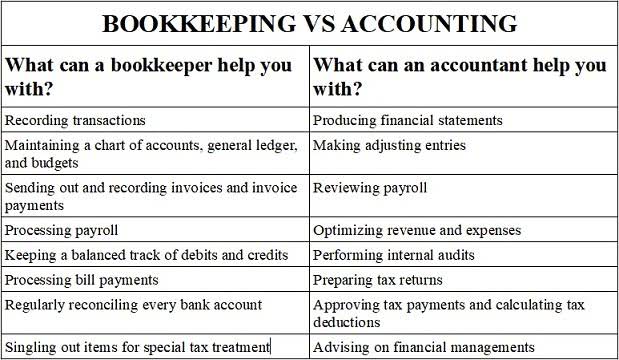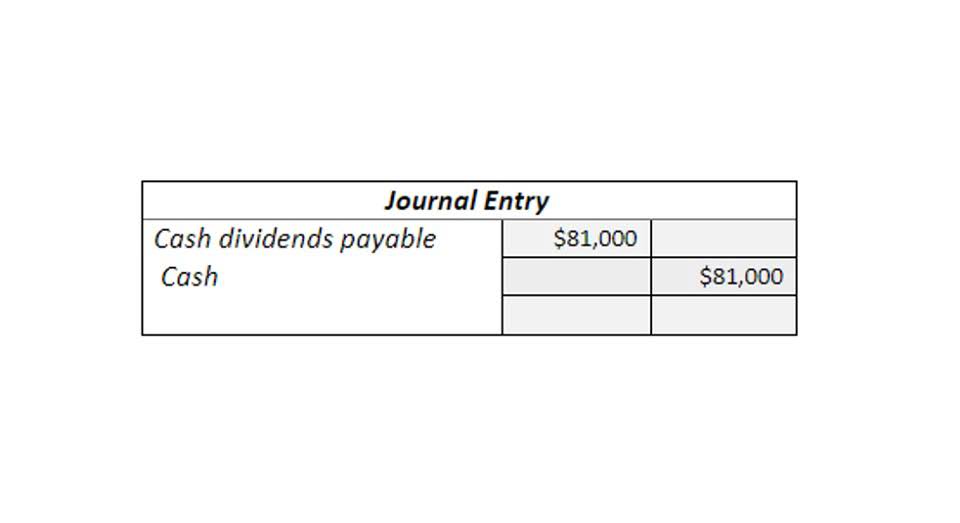
Businesses do better when they have a complete picture of their CARES Act finances, and bookkeepers and accountants each look at a business’ numbers through different lenses. Engaging both a bookkeeper and an accountant ensures that you receive the best advice for your business. As the month moves along, bookkeepers match transactions in their accounting software to transactions coming in through the bank feed. As the tax code increases in complexity, tax resolution has become a popular focus with many accountants. Many people use the words business accounting and bookkeeping interchangeably.
- They must be able to multitask and work with numbers and financial data.
- Accountants take the financial data that’s been meticulously recorded and then extrapolate trends and information.
- Bench Accounting offers further insights into the skills needed for bookkeeping success.
- Most positions require at least a bachelor’s degree in accounting or a related field, such as finance or business administration.
- If you’re searching for accounting software that’s user-friendly, full of smart features, and scales with your business, Quickbooks is a great option.
Cash flow

Many small businesses don’t make the choice between bookkeepers vs. accountants the terms accounting and bookkeeping are interchangeable. and simply have both. At the end of the month, bookkeepers get the bank/credit card statements from the client and reconcile each account, then close the period so nothing can be edited or deleted. The client gets notified, then reviews the PDF of the vendor bill and approves it for payment.
- A deeper understanding of accounting principles and software can make a bookkeeper much more valuable to any business.
- Accounting helps businesses make informed decisions by identifying areas of financial strength and weakness.
- Many small business owners aren’t sure about the difference between bookkeeping vs. accounting.
- A bookkeeper’s primary responsibility is to ensure these records are up-to-date, accurate, and organized.
- For example, bookkeeping software can handle recording transactions for the most part, but it’s not infallible.
- Additionally, integrating a tool like Expensify can automate expense reporting and tracking — reducing the workload for everyone involved.
Required Skills & Qualifications for Finance Professionals
They use the information provided by bookkeepers to prepare comprehensive financial reports, including tax returns and balance sheets. Beyond reporting, accountants analyze financial performance, identifying trends, strengths, and weaknesses. This analysis forms AI in Accounting the basis for sound financial advice, helping businesses optimize their operations and improve profitability. Accountants also play a crucial role in ensuring compliance with regulatory requirements, giving business owners peace of mind.
Required Education
- At its core, bookkeeping is about maintaining precise records of all financial transactions.
- However, while they are closely related, they serve distinct roles in a company’s financial management.
- Small business owners and individual taxpayers can also benefit from a strong working knowledge of basic accounting concepts and terms.
- Owners of LLCs cannot be held personally liable for debts incurred solely by the company.
- In conclusion, understanding the differences between accounting vs. bookkeeping is crucial for effective financial management.
- For example, adjusting entries are used to account for transactions that started in one accounting period and ended in a later period or that corrects a mistake from a previous accounting period.
As technology has changed the way we all work, we have seen a shift in bookkeeping vs. accounting. Automations within accounting software have dramatically streamlined the bookkeeping function. This has freed bookkeepers from much of the traditional data-entry work, letting them step into more of an advisory role.

Since most people consider bookkeeping and accounting to be interchangeable, there is often a lot of misconception about what each professional can provide. Here are a few key differences between what bookkeepers do vs. what accountants do. As the line between bookkeeping vs. accounting has become less clearly defined, some states have begun to restrict who can call themselves an accountant. In some states, a person must be a CPA in order to refer to themselves as accountants.
● Cost of Goods Sold

Bookkeeping is often confused with accounting, but they are not the same thing. In fact, accounting is a higher-level function that builds upon the information provided by bookkeeping. Accounting involves analyzing and interpreting the financial data recorded by bookkeepers to make informed business decisions. Bookkeeping is the foundation of any business’s financial management, and it’s essential to understand its role.

● Profit and Loss Statement
- Hiring a bookkeeper helps you ensure accurate and up-to-date record-keeping, which forms the foundation of your financial system and sets accountants up for success.
- Compliance with industry-specific regulations is also essential, depending on the nature of the business.
- It differs from receipts, as it can include monies that are not collected at the delivery time.
- Learn about start dates, transferring credits, availability of financial aid, and more by contacting the universities below.
- Bookkeepers want to make sure your business is profitable; accountants want to help you pay less tax.True.
Bookkeeping shows figures, while accounting provides the data and context needed to make business decisions based on an organization’s financial situation. The two terms have become interchangeable in many ways, but accounting and bookkeeping are very different. Keeping meticulous financial records is all the more important for grant recipients who must remain compliant with the conditions of their award. Periodically, the accountant will review interim financial statements to ensure that any estimated payments need to be adjusted. They might enter monthly or quarterly adjustments for depreciation or to expense out any prepaid liabilities, like insurance. In addition, they might provide reviewed financial statements in certain situations, like if the client is applying for a loan, or perform an audit of the financials.
Take the time to assess your requirements, research professionals, and find the right partner to help you navigate your financial journey. In its most basic sense, accounting describes the process of tracking an individual or company’s monetary transactions. Accountants record and analyze these transactions to generate an overall picture of their employer’s financial health. By contrast, the alternate method of cash basis accounting would only record that $1,000 as revenue when the customer actually paid for the purchase.
